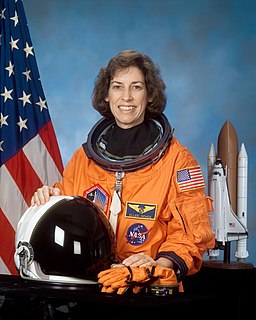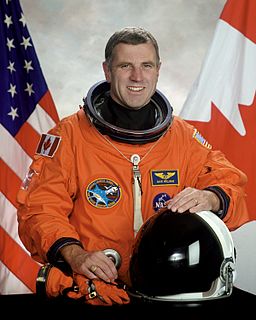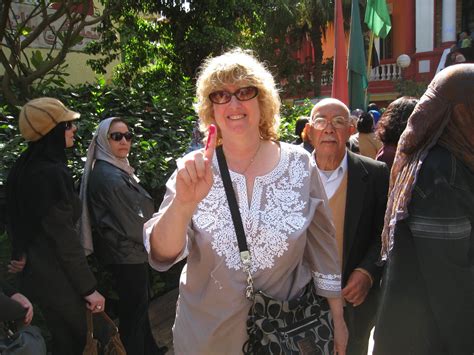A Quote by Dylan Taylor
The bottom line is 2018 should finally be the year where we see the early stages of broad-based commercial space tourism appear. Demand will certainly be driven by the early successes or failures of those missions, the marketing of those missions, as well as the propensity for tourists to become repeat flyers.
Related Quotes
NEEMO missions are a challenging and exciting aspect of astronaut training. The research we conduct during those missions allows us to test new technologies and exploration concepts in conditions similar to the ones we'll experience in space. They are a great opportunity to help me expand my knowledge and develop new tools for future space exploration.
The Russians have been flying long duration crews since the early '70's. And in the early days, they've ended at least two missions early because of conflicts within the crew. So, they learned early on the importance of studying this and making sure you put the right crew together. Since we began our work together on the International Space station with the Russians in the early 2000's, NASA has started to learn the importance of this kind of work. And so, I think it's important work and we are not fully onboard and recognize it as important.
We will eventually build space science labs and hotels, prodding the capability for missions beyond the orbit of the Earth. Our space-hotel guests will be able to take breath-taking excursions, flying a couple of hundred feet above the Moon's surface in small two-man spaceships. In time, we will launch missions to Mars and beyond.
One of the things that's really exciting from my perspective is that Canada is one of the major spacefaring nations. The list of our achievements is profound and significant, and it's not just in robotics, it's also in the life-sciences research experiments that take place on board and other space-science experiments. I'd love to see Canada go from being a major spacefaring nation in low-Earth-orbit missions to those beyond, making sure we're part of those missions to Mars - not just from a technology perspective, but sending humans into beyond-Earth orbit.
If you are to be successful...you will need to be inspired. You will need to receive revelation. I will give you one piece of advice: Go to bed early and get up early. If you do, your body and mind will become rested and then in the quiet of those early morning hours, you will receive more flashes of inspiration and insight than at any other time of the day.
I'm outraged by the attacks on American diplomatic missions in Libya and Egypt and by the death of an American consulate worker in Benghazi. It's disgraceful that the Obama Administration's first response was not to condemn attacks on our diplomatic missions, but to sympathize with those who waged the attacks.
When I first went to Hubble, as an astronomer and as a scientist, it was a dream come true. And as an astronaut, the Hubble missions are premiere missions because Hubble is so important to science, so important to humanity, that it's just a very special event. But as an astronomer, it was sort of the holy grail of missions.
Tourism is very important for Egypt as fewer tourists means fewer jobs! Of course there are positives and negatives from tourism... Tourism is a type of use, if not properly planned and managed it can destroy the very resources that brings the tourists. No reefs equals no diving, it's a simple equation. Tourism development has to be appropriate.
































